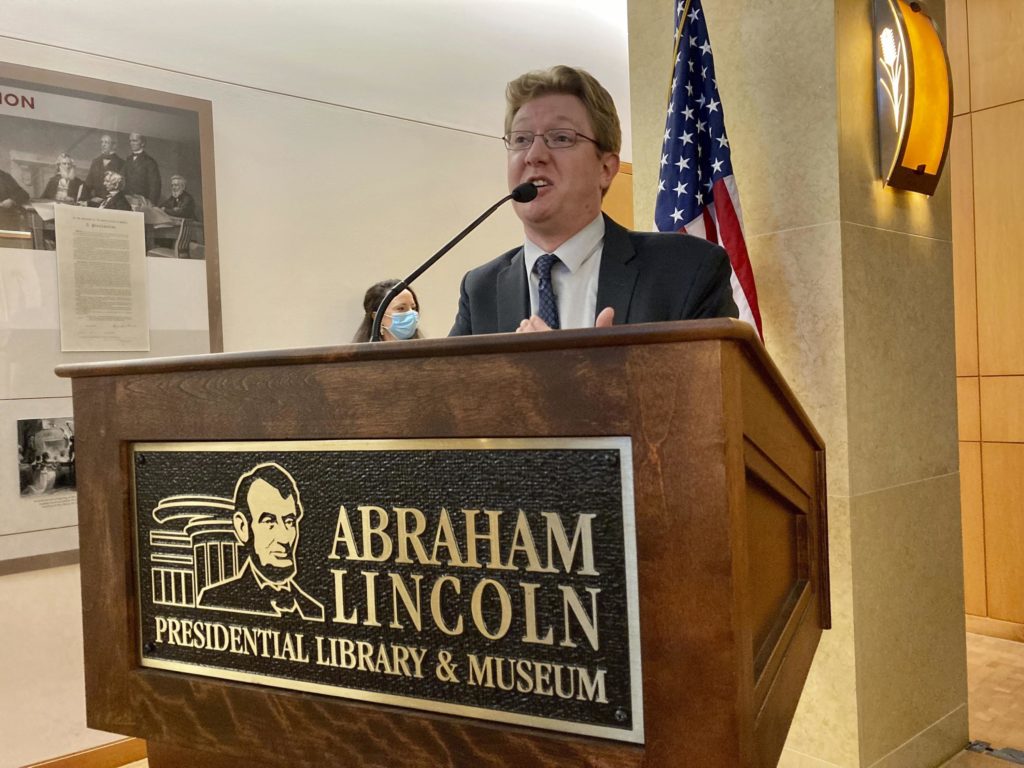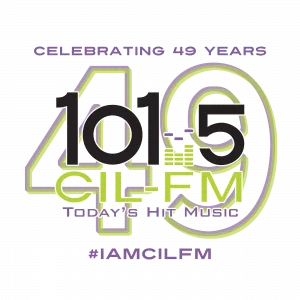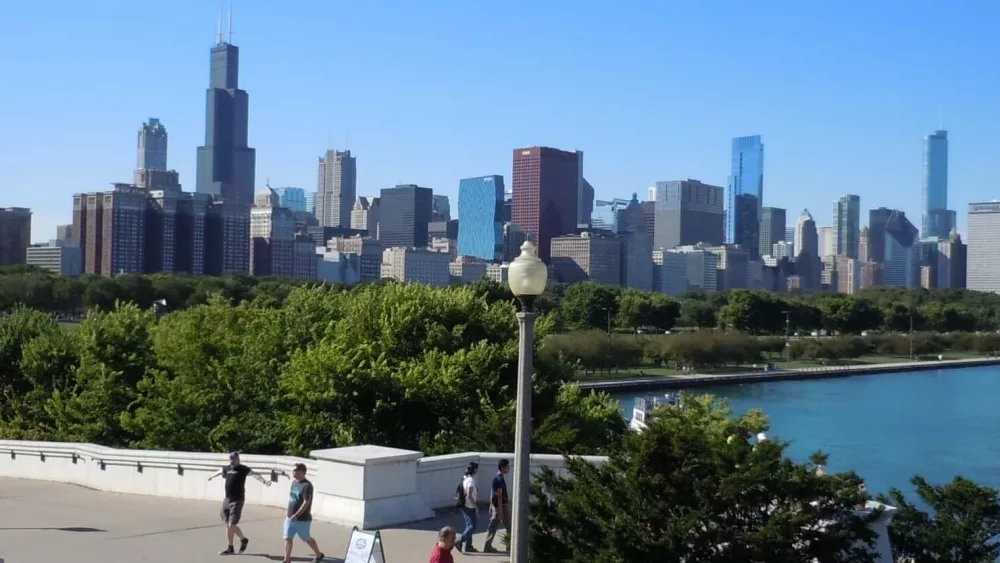
SPRINGFIELD, Ill. (AP) — The storage-room merchants’ desk where President-elect Abraham Lincoln penned his first inaugural address, beseeching southern states to recall the “mystic chords of memory” and invoke “the better angels of our nature” to circumvent the Civil War, was unveiled by Illinois officials Thursday after a painstaking restoration to its 1850s splendor.
The walnut-and-poplar hulk is displayed in the library atrium of the Abraham Lincoln Presidential Library and Museum in downtown Springfield. It’s two blocks from the third-floor sanctum where the 16th president stole away to concentrate on crafting his case to a divided nation against secession over slavery.
“Lincoln used this desk to write a message of peace when the country was tearing itself apart,” library and museum executive director Christina Shutt said. “Sometimes it seems like we’re nearly as divided today. I hope this desk will…invite us to remember Lincoln’s words that, ‘We are not enemies, but friends. We must not be enemies.’”
Hounded by friends and favor-seekers after his unlikely election, Lincoln sought a hideout to prepare his March 4, 1861, inaugural. His brother-in-law, Clark Moulton Smith, offered a room in his store on the statehouse square, according to Smith’s family and the biography by Lincoln law partner William Herndon.
There, Lincoln found the oasis, measuring about 6 feet wide, 3 1/2 feet deep and 6 feet tall.
By the time he took the presidential oath, the Confederacy had been established, and though the war’s debut at the battle for Fort Sumter in South Carolina was just six weeks away, Lincoln proceeded with his appeal: “Though passion may have strained it must not break our bonds of affection. The mystic chords of memory … will yet swell the chorus of the Union, when again touched, as surely they will be, by the better angels of our nature.”
The state purchased the desk from Smith’s daughter in 1953 for $500 and for decades it sat in the Old State Capitol with no notice to recommend it. This year, Third Coast Preservation of Elmhurst got $6,300 and six months to restore it, which included reversing well-meaning changes in a 1958 makeover — changes that were historically inaccurate at best and damaging at worst, Third Coast conservator Anna Weiss-Pfau said.
Historical objects have a visceral impact often missing with documents, such as the ones paired with the desk for the exhibit, “Lincoln’s Life in Letters,” from an early homework assignment to the Emancipation Proclamation, Lincoln historian Christian McWhirter said.
“An object maybe doesn’t provide you as many details as say a letter would, but an object just carries so much power…,” McWhirter said. “People can be brought to tears by a historical object.”
Each change made to the inaugural desk — nails pulled, cornices replaced, glue blocks removed — is saved because they’ve become part of the object’s history but also to offer a roadmap to future restorers, said Third Coast conservator Robin DeGroot, who did the bulk of the work.
Asked whether the desk’s history or the words Lincoln set down on it spoke to him during his toil, DeGroot joked, “I should say ‘yes.’”
“I do understand the significance,” DeGroot said. “I appreciate the opportunity to help preserve it. But my part is like, ’OK, well it took me six months to do it but now it’s going to be here and hopefully thousands of people will be able to see this. That is really more important.”
By JOHN O’CONNOR for the Associated Press








